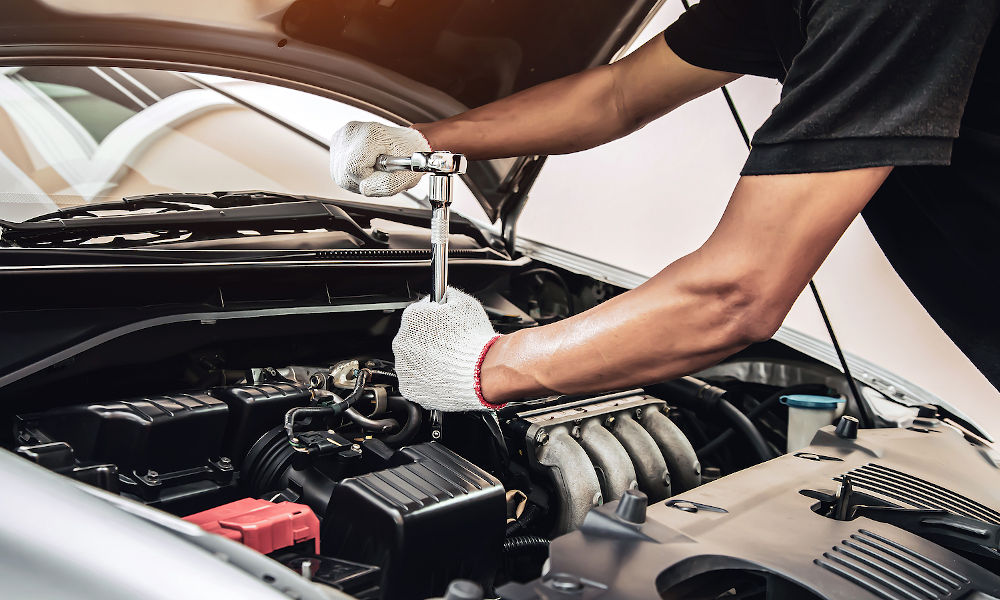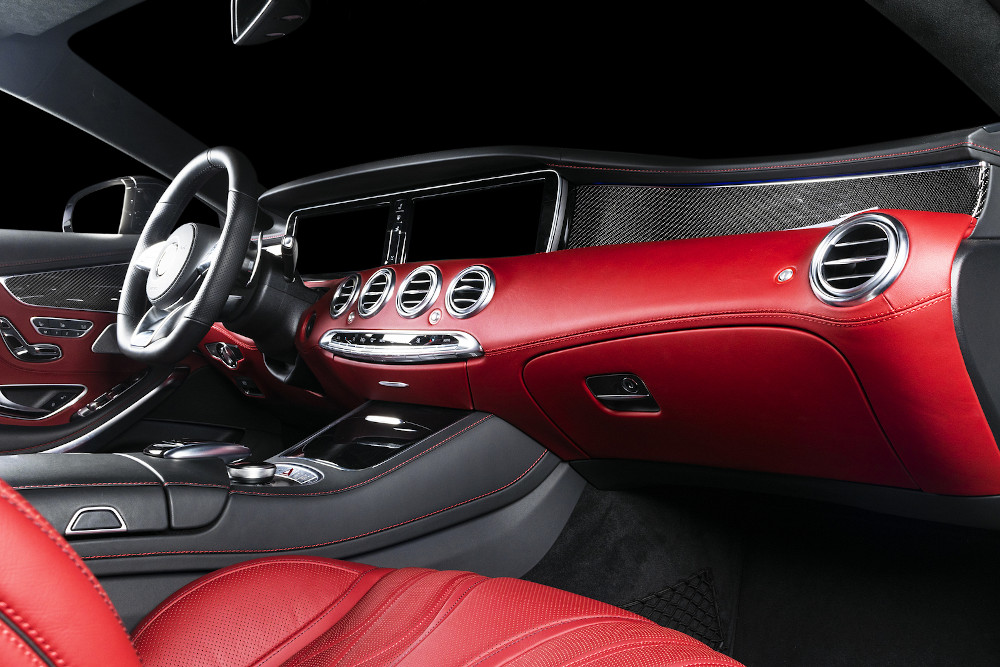Thinking of treating yourself to that latest luxury supercar? There are few things as exciting as adding a brand new set of wheels to your collection, and when money is no object, you’re all set for the ride of your life. But while there’s no denying the glamour of splurging on the latest Lamborghini, collectible Ferrari or classic Bentley, the initial price-tag might not be the only cost associated with treating yourself to the car of your dreams.
The more expensive a vehicle is, the more you’re likely to spend on repairs over its life-span, so it’s worth bearing in mind the not-so-fun expenses before you make your purchase. No matter how much money you have stashed in the bank, few of us like spending our hard-earned fortunes on inconveniences – and while brand new cars do come with warranties, classic and collectible cars will be unlikely to offer the same guarantee.
From accidents to skipped services, you could quickly see your repair bills racking up if you’re not careful – but what exactly should you be wary of? Here, we take a look at some of the most expensive auto repairs car owners can be faced with – and the pricier your car was to buy, the more they are likely to cost.
1. Bent frame repairs
The frame is your car’s foundation and skeleton, providing support and stability to the entire vehicle. It also ensures the smooth performance of your vehicle when you’re behind the wheel – so a bent frame, which can result from a minor bump or more serious accident, can turn out to be a major problem.
Having a bent frame is not an isolated problem, and tends to interrupt the functions of the other important systems of a car, too. Repairing a bent frame can set you back between £6,000 and £8,000, depending on the car in question – sometimes, even more.
If the problem is the result of a road accident then it could be one of the many issues in need of repair. The best extended car warranty can help you get your car’s frame replaced without the unnecessary expense, so consider taking one out when you buy your car to keep costs down later on.
2. Complete engine replacement
One necessary car repair you would never want to hear about at your mechanic’s shop is the need for a complete engine replacement – a serious problem that can easily set you back multiple thousands of pounds. This type of repair comes after major engine damage, often affecting car owners whose vehicles have exceeded 60,000 miles on the clock or are at least five years old.

Car damage this major can be the result of many things – from driving your car through a flooded area, to allowing your car’s oil levels to get too low. A broken timing belt or an overheated engine are also common causes of major engine damage.
Cars will often emit warning sounds to let you know there is an engine problem, so be sure to heed these, rather than ignore them. If your vehicle is trying to warn you of an issue, then get it to a mechanic as quickly as possible -the sooner you deal with an issue, the less it is likely to spiral, whereas the longer you leave it, the worse – and more expensive – things could be in the long-run.
3. Head gasket replacement
A head gasket is a separator between the cylinder head and the bottom part of the motor, and exists to seal the process of combustion in every cylinder to maintain compression. The gasket prevents the mixing of the coolant and oil, too – so a blown gasket can be quite a problem and will instantly prevent you from driving your car.
The head gasket is responsible for ensuring the coolant stays in the coolant channels and the oil stays in the rotating assembly, so if it is no longer doing so, you’ll find your car in trouble, Replacing your car’s head gasket could set you back £1,000 to £3,000 – but again, this can be much more when it comes to high-end, luxury models.
4. Engine block repair
An engine block is the bottom part of the engine and is either cast iron or aluminium. It forms the foundation of the main engine components, and houses the camshaft, connecting rods, crankshaft, and pistons.

A crack in the engine block is often difficult and time-consuming to repair, and will set you back around £3,000 at the very least. In some cases, repair costs can be far higher – almost as much as getting a brand-new car engine – so suffice it to say that this is an issue most would rather not have to encounter.
5. Transmission replacement
A car’s transmission is the second most vital part of a vehicle, converting the engine’s power into torque.. Broken gears and burnt clutches are common transmission issues, and rebuilding your car’s transmission is almost like replacing it entirely. A transmission replacement can cost anywhere upwards of £3,000.
6. Turbocharger assembly replacement
Turbocharger assemblies are complicated, and repairing them is often expensive and difficult. This type of repair can cost at least £3,000 – £5,000, with the problem usually resulting from other expensive repairs. When it comes to car issues, one can often have a knock-on effect on another, so it’s wise to always get your car fully assessed and serviced to ensure that you’re getting the full picture should something go wrong.
7. Suspension repair
Suspension repair is the simultaneous correction of the ball joint, tie rod end, rear shock absorber, and front strut, and can also incorporate a four-wheel alignment. These repairs can set you back about $300 to $3,500, so while it isn’t necessarily the most expensive repair you could have to worry about, it really depends on how badly it’s damaged. Like many issues, an extended car warranty can help cover the costs of suspension repair, so consider investing upfront to avoid hassle and expense later on.

8. Catalytic converter repairs
If your car’s exhaust begins to smell like sulphur – or rotten eggs – even after cleaning, then it might be time to have your catalytic converter repaired.
Problems with your catalytic converter could be due to a broken or contaminated honeycomb structure inside. Replacing the catalytic converter with a new one can cost anywhere from the hundreds up to the thousands, depending on what model your car requires – and as you’ve likely guessed, the more expensive your car was, the more you can expect to pay for parts.
9. Differential repairs
A car’s differentials tend to fail earlier than other components of the vehicle because they are more vulnerable to wear. The most common reason for differential failure is using specialty lubricants or simply the wrong type of lubricant – but the entry of water through seals and vents can also cause the same problem. Driving in a flooded environment allows water to emulsify the lubricant, rusting the bearing and gear surfaces – which is why it’s so vital to avoid getting behind the wheel of expensive cars in such conditions.
SUVs and trucks are prone to this kind of problem, but regular maintenance and due care and attention when driving your car can help you to avoid it. Changing the car’s fluids regularly is important to keep the bearings and gears fully lubricated – and even more so if you drive off-road use your vehicle to tow others. Regular maintenance does not cost that much if you compare it to the cost of differential repair, which can set you back £400 to about £3,000 upwards, with the final price depending on the level of repairs needed.
10. Powertrain control module repairs
The powertrain control module is the brain of your car’s components, like the transmission and engine. Failure in the control module can result in unpredictable issues and is often a problem that mechanics find difficult to diagnose – and replacing your control module is expensive. You can pay between £300 and £3,000 on average for repairs or replacement.






















